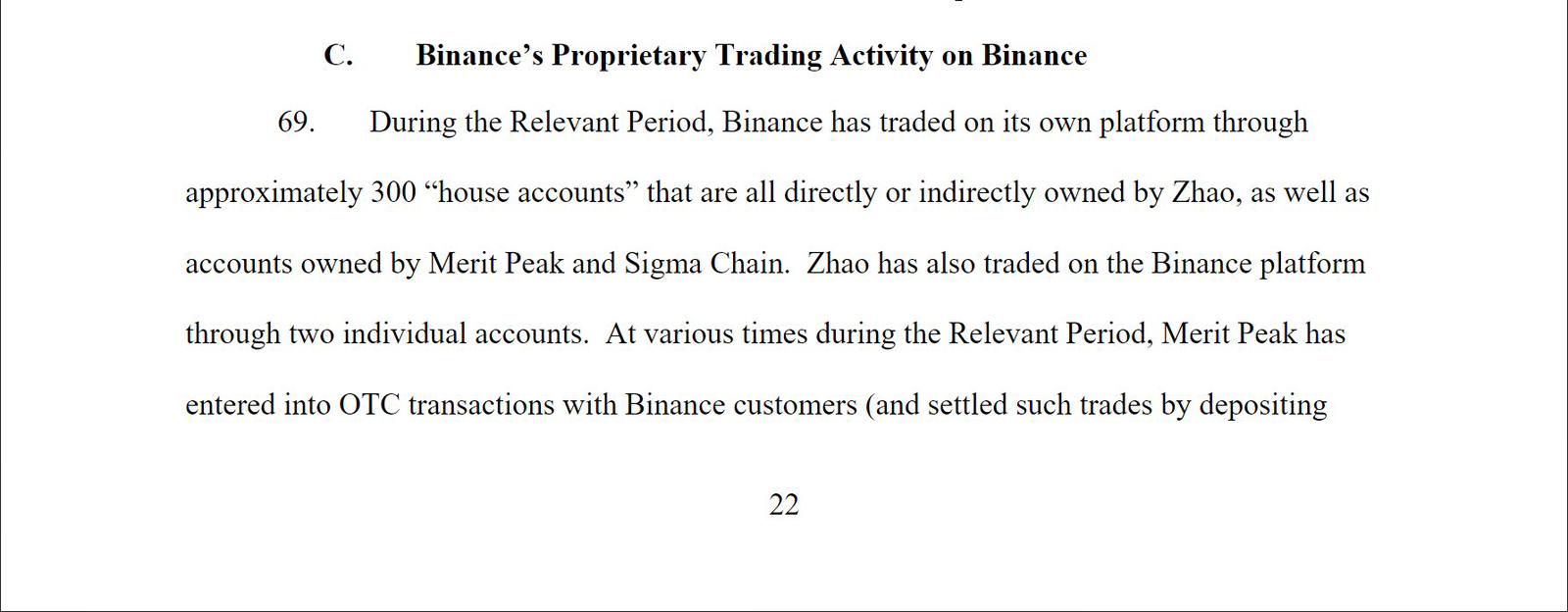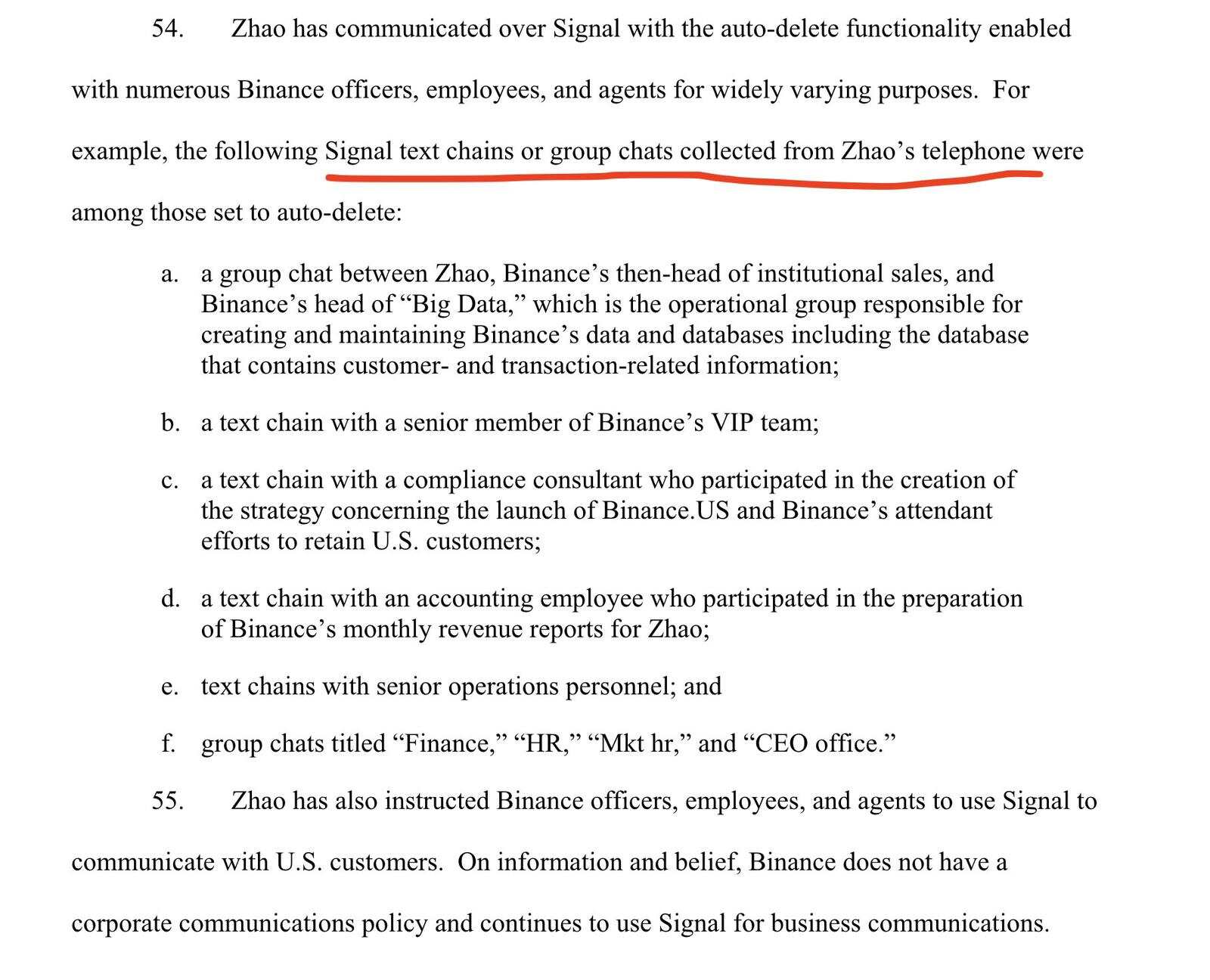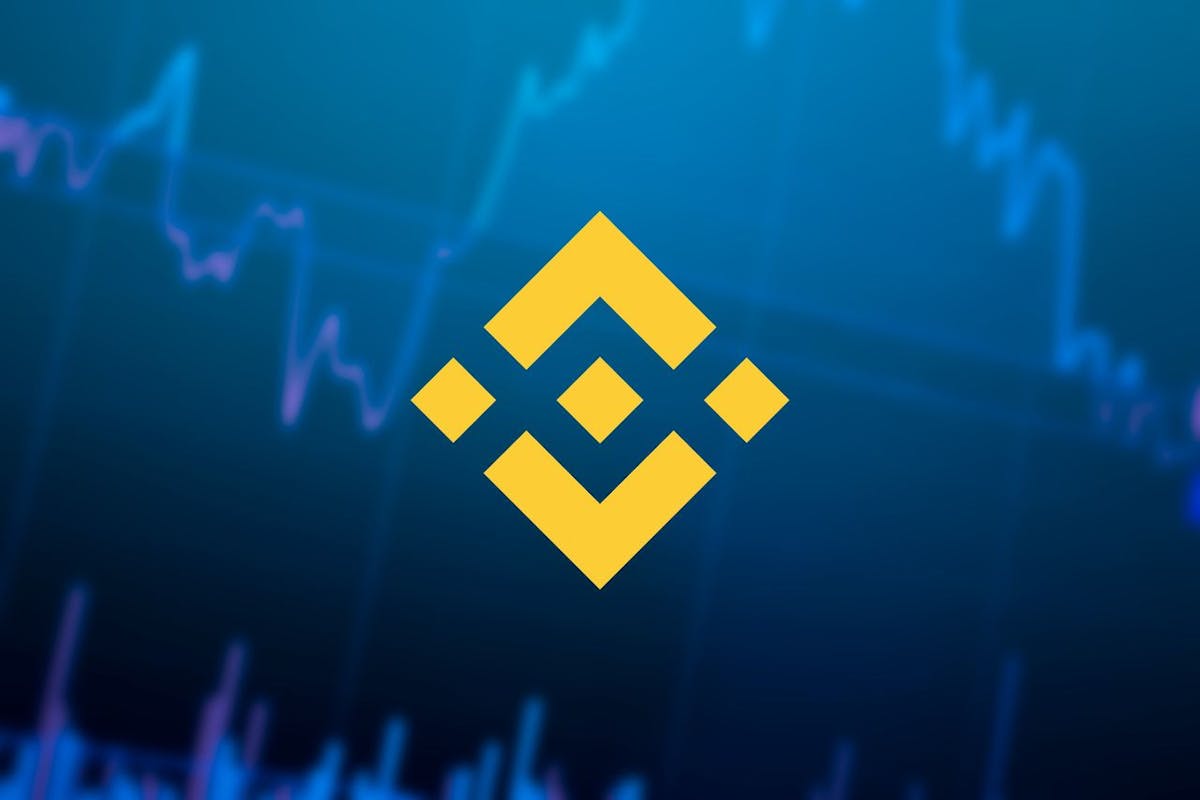The Commodity Futures Trading Commission (CFTC) has announced a civil enforcement action against Binance, the cryptocurrency exchange platform, and its CEO, Changpeng Zhao, for multiple violations of the Commodity Exchange Act (CEA) and CFTC regulations. The complaint also charges Samuel Lim, Binance’s former chief compliance officer, with aiding and abetting the exchange’s violations.
According to the complaint, Binance Holdings Limited, Binance Holdings (IE) Limited, and Binance (Services) Holdings Limited (together, Binance) operated the Binance centralized digital asset trading platform and numerous other corporate entities through a deliberately opaque common enterprise. The defendants are alleged to have knowingly disregarded applicable provisions of the CEA while engaging in a calculated strategy of regulatory arbitrage to their commercial benefit.
In its continuing litigation against the defendants, the agency seeks disgorgement, civil monetary penalties, permanent trading and registration bans, and a permanent injunction against further violations of the CEA and CFTC regulations, as charged.
The case background
The complaint alleges that Binance offered and executed commodity derivatives transactions to and for US persons from July 2019 through the present. Binance’s compliance program has been ineffective, and at Zhao’s direction, Binance instructed its employees and customers to circumvent compliance controls to maximize corporate profits.
The complaint also charges Binance with acting as a designated contract market or swap execution facility based on its role in facilitating derivatives transactions without registering with the CFTC, as required.
According to the complaint, for much of the relevant period, Binance did not require its customers to provide any identity-verifying information before trading on the platform, despite the legal duty that entities like Binance functioning as futures commission merchants (FCMs) collect such information. It also failed to implement basic compliance procedures designed to prevent and detect terrorist financing and money laundering.
The complaint further alleges that even after Binance purported to restrict US customers from trading on its platform, Binance instructed its customers – in particular, its commercially valuable US-based VIP customers – on the best methods for evading Binance’s compliance controls. The complaint also charges the entity defendants with failing to diligently supervise Binance’s activities as an FCM.
Zhao and Lim
The complaint alleges that Zhao owned and controlled dozens of entities that operate the Binance platform as a common enterprise. Zhao is responsible for all major strategic decisions at Binance, including devising the secret plot to instruct US-based VIP customers to evade Binance’s compliance controls and instructing Binance employees to ensure all communications about their control subversion took place over applications that facilitated the automatic destruction of evidence.
Lim, Binance’s CCO from 2018 through 2022, is charged with willfully aiding and abetting Binance’s violations through intentional conduct that undermined Binance’s compliance program. Lim is also charged with conducting activities to willfully evade or attempt to evade applicable provisions of the CEA, including promoting the use of “creative means” to assist customers in circumventing Binance’s compliance controls and implementing a corporate policy that instructed Binance’s US customers to access the trading facility through a virtual private network to avoid Binance’s compliance controls.
Just a few days ago, we reported that the US Justice Department is also investigating Binance to determine whether the company has complied with securities fraud laws. Criminal charges against the company’s founder, Changpeng Zhao, and other top executives, such as conspiracy to evade taxes, illegal money transmission, and violation of criminal sanctions, are being considered. Binance allegedly engaged in accounting fraud worth more than $10 billion in 2022 and attempted to avoid regulatory authorities, a charge that the cryptocurrency firm has denied.
HAMAS Transaction On Binance
HAMAS Transaction On Binance
The complaint further states that Binance’s officers, employees, and agents have admitted that the Binance platform may have facilitated activities that could be deemed illegal. In February 2019, after receiving information about transactions related to HAMAS, Lim, an employee of Binance, told a colleague that terrorists usually transfer small amounts of money as large sums are usually associated with money laundering.
The colleague responded that $600 would barely be enough to buy an AK47. Furthermore, in a conversation from February 2020, Lim admitted that certain Binance customers, including those from Russia, were there for criminal purposes. The MLRO of Binance also agreed that the company is aware of the wrongdoing, but chooses to turn a blind eye.
Proprietary trading and the role of the quant desk at Binance
It is also noted that Binance engaged in trading activities on its own platform during the Relevant Period through around 300 “house accounts” owned by CEO Zhao and accounts owned by Merit Peak and Sigma Chain. In addition, Zhao also conducted trades on the Binance platform through two individual accounts.

Merit Peak conducted over-the-counter transactions with Binance customers during certain times, settling trades by depositing digital assets directly into the counterparties’ Binance accounts. Sigma Chain, on the other hand, engaged in proprietary trading in Binance’s markets for digital asset derivatives and other various markets. It is believed that Binance’s “quant desk” directs the company’s proprietary trading activities on its own markets.
When will Binance’s German CEO Michael Wild and all of its other International leaders be fired?
Now, the important question is when will Binance’s German CEO Michael Wild and other international leaders of the company fired in the wake of the allegations made against the company by the Commodity Futures Trading Commission (CFTC).
The CFTC’s complaint alleges that Binance has violated US laws and regulations by offering commodity derivatives transactions to US customers without registering with the CFTC. The complaint also alleges that Binance has grown its US business despite publicly stating its intent to block US customers from accessing the platform. If these allegations are proven to be true, it could result in significant legal and financial consequences for Binance and its leadership team. It remains to be seen how Binance’s board of directors will respond to these allegations and whether they will take any action against its top executives.

According to the CFTC, Binance employed various communication platforms like Signal, WeChat, and Telegram to interact with its customers and internally. The agency also cited conversations from Zhao’s Signal chats, including some with an undisclosed US trading firm, in its complaint.
The CFTC further notes that Zhao utilized Signal with the auto-delete function turned on, even after receiving document requests from the agency and distributing document preservation notices to Binance employees. The agency then highlights several group chats with titles such as “Finance,” “HR,” “Mkt hr,” and “CEO office” that had auto-delete enabled.
According to the complaint, despite Binance publicly stating its intention to prevent US customers from accessing its platform, it has continued to expand its US business. The complaint alleges that Binance guided its most valuable US customers on how to bypass compliance controls even after announcing restrictions.
The CFTC complaint claims that Binance has prioritized profitability over compliance with applicable federal laws. It alleges that Binance has been offering commodity derivatives transactions to US customers since July 2019, despite not being registered with the CFTC.
The CFTC is seeking fines and permanent trading bans as punishment for Binance’s alleged violation of the law. Gretchen Lowe, the CFTC’s chief counsel, accused Binance of putting profits ahead of complying with the law. She said Binance’s compliance efforts have been a sham, and the company repeatedly chose to prioritize profits over following the law.
Conclusion
The CFTC’s announcement underscores its commitment to regulate the volatile and risky digital asset market and to use all its authority to find and stop misconduct. The case also demonstrates that the CFTC will not tolerate willful avoidance of US law. The ongoing litigation against Binance and its CEO Zhao highlights the importance of following regulations in the cryptocurrency market.

